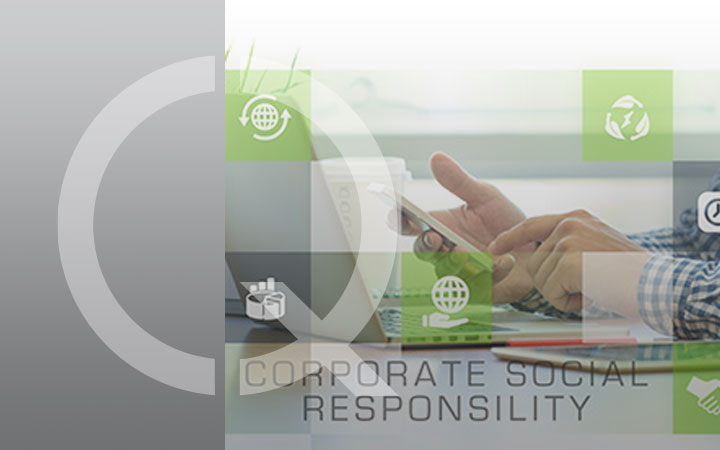
WHAT IS THAT
Implementing a Social Accountability Management System in accordance with IQNet 's SR-10 Standard offers the ability to 'systemise' and integrate social accountability management within the entire organization.More and more organizations are aware that they need to improve the impact of their decisions and activities on society and the environment , without considering the benefits of socially responsible management that contributes to sustainable development , health and well-being of society.
On the other hand, the needs of society and more generally of interested parties are increasingly growing, requiring organizations to (de) demonstrate their ethical behavior , their systematic and transparent management system, in compliance with the law, going beyond simple legal compliance.

To respond coherently, the entire organization, transparently and at the same time performing to these requests, will have to adopt a management system that is capable of integrating social responsibility within the company, as an integral part of the corporate strategy.
SR-10 defines the certifiable requirements of a Social Accountability Management System in such a way as to help the organization achieve the satisfaction of stakeholder needs and expectations and contribute to sustainable development , all through transparent and ethical behaviour.
CSQA as a member of the independent federation CISQ, the only Italian representative of IQNet, is able to offer this certification service.
KEY POINTS
- Management tool based on the PDCA cycle of continuous improvement.
- It can be applied to all types of organizations, regardless of their characteristics, size or location.
- It considers and provides a response to all interested parties.
- It is easy to integrate and is compatible with other management systems based on ISO standards and internationally recognized models of excellence (ISO 9001, ISO 14001, ISO 45001, SA8000, etc.).
- Collects and implements the principles, directives and recommendations described in ISO 26000 (“Guide to Social Responsibility”)
ADVANTAGES
ECONOMIC ASPECTS- SR 10 helps to improve competitiveness, relations with investors and partners, reduce reputational risk and therefore facilitate access to financing
- SR-10 helps to have a better positioning than the competitor
- Strengthen the image with customers and consumers; avoid or reduce potential conflicts on the products/services provided
- It allows to obtain savings associated with an increase in productivity, efficient use of resources (reduction in energy and water consumption, waste reduction and recovery of the value of by-products where possible)
- Position the organization as socially responsible
- It provides a precise and methodological guide to the decision-making process based on a greater understanding of society's expectations, on the opportunities associated with Social Responsibility without forgetting to evaluate the risks of a lack of action/decision/activity of Social Responsibility
- Complete management of the Social Accountability system, easy to integrate with other management systems ( ISO 9001 , ISO 14001 , etc.) and excellence models (EFQM, FUNDIBEQ, etc.)
- Better risk management by your organization
- Increase employee retention , increase their involvement, participation and moral behavior
- Improve the health and safety of workers
- Reduces negative impacts on society and the environment
- Contributes to the promotion and start-up initiatives and programs for society and the community with the aim of improving the social aspects of the community and the life of society - Responsible innovation
- It favors the launch of actions and initiatives that represent a positive impact on ecosystems and in favor of biodiversity
- Improve communication and own understanding of the expectations and needs of all stakeholders
- It improves the reputation of your organization and promotes greater trust in general